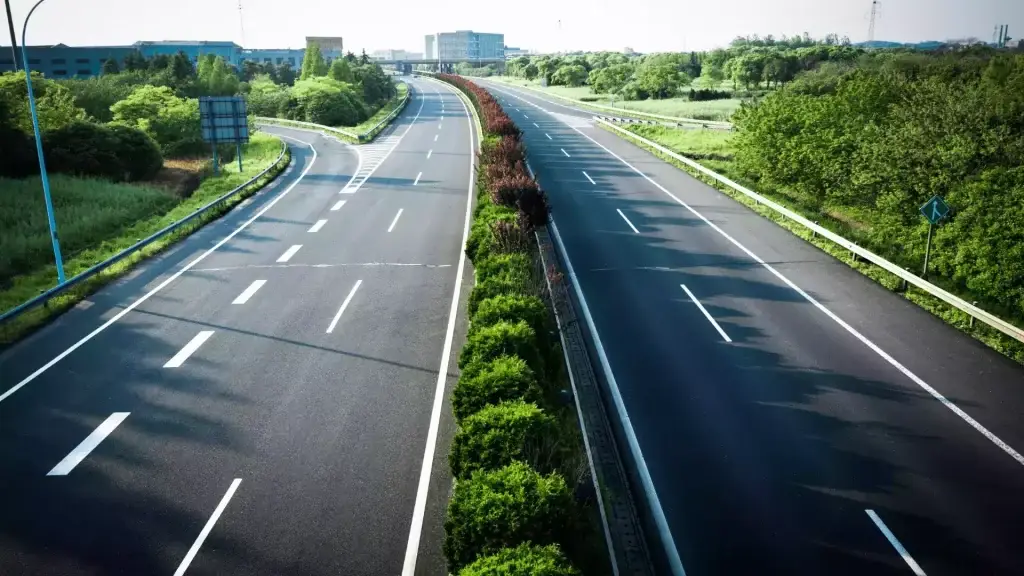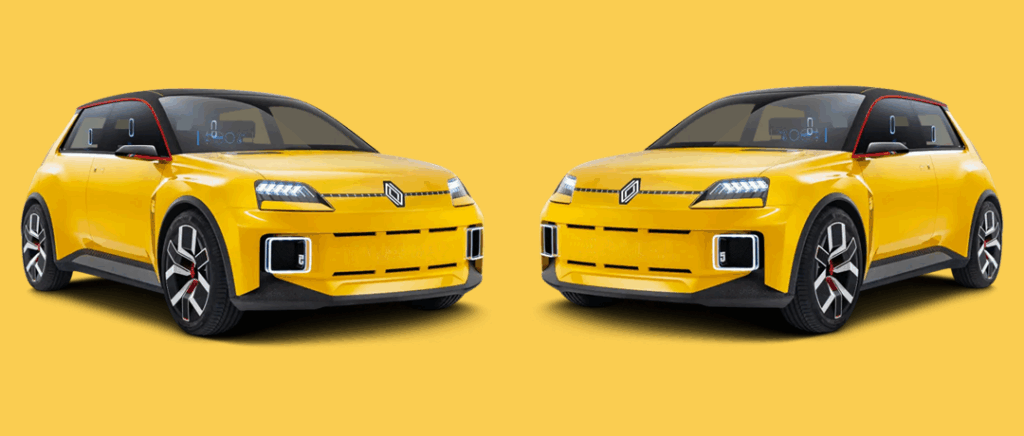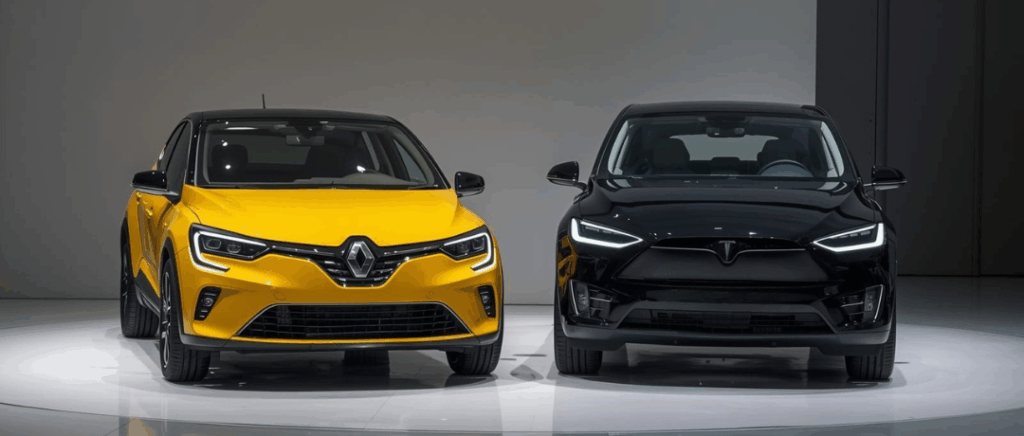Monday to Friday 9am - 12.30pm - 2pm - 7pm
The consequences of lower speed limits
If this measure is introduced in the near future, it's worth knowing what to expect. Here you will find all the impacts arising directly from this provision.
Giving our planet a second wind
First of all, it is important to note that lowering the speed limit on the motorway from 130 km/h to 110 km/h is a measure with immediate effect. For example, if it is announced that the speed limit will be lowered the following morning, then you could be penalised if you drive at the same speed as before. So by having a decision that takes effect instantly, you get results more quickly. The first, and undoubtedly the most valued by the political figures in favour of this initiative, is the reduction in pollution.
Indeed, the main reason behind this decision is the desire to reduce greenhouse gas emissions. In 2021, l'carbon footprint of Franceemissions, which represent the quantity of greenhouse gases generated by a country's domestic final demand, was estimated at 552 million tonnes. Bearing in mind that motorway speed limits are set at 110 km/h, this would save 0.9 million tonnes of CO2 per year0.2% of greenhouse gas emissions in France, for a single measure!
Making savings
In addition to this opportunity for the environment, we can also see a significant financial advantage, and a quick one too. Increasingly, drivers of combustion-powered vehicles are facing a host of difficulties. Between soaring prices and government measures to encourage the energy transition, their daily lives seem to be disrupted. But what if we told you that by lowering the speed limit, you could save money? In fact, driving at 110 km/h rather than 130 km/h saves up to 25% of fuel, which is not insignificant given the current economic climate.
ADEME also shows us that by driving even 10 km/h slower than usual, i.e. at 120 km/h on a motorway, you can save up to five litres of fuel over 500 kmThat's a saving of €7 for you. The electric vehicles are also saving on their autonomybut this subject will be covered in greater depth in the section dedicated to electric cars. What's more, this reduction does not present any risk of fuel poverty. thermal vehicle you can do your bit for the environment, at no cost to yourself!
Taking your time on the road
Finally, let's look at the last, and by no means least, consequence: longer journey times. This is surely one of the most frequently cited objections when speed reduction measures are introduced. In 2018, when Prime Minister Edouard Philippe made reduce the speed limit on roads from 90 km/h to 80 km/hAt the time, a number of drivers were opposed to this decision, which concerns their everyday roads. The main difference with this initiative is that it concerns motorways.
Admittedly, journey times will be longer, but motorways are favoured for long-distance journeys, which are more occasional and less frequent in most cases. It should not be forgotten that for some drivers, motorways represent the daily route, but these remain marginal. As a result, the more time we take on the road, the greater our concentration. This reduces the risk of inattention, accidents and so on. Driving slower certainly takes time, but it makes you safer.
Economic impact: a financial opportunity
First of all, it is important to know that if this lowering is decided, it does not represent any cost in absolute terms. In fact, it does not require the installation of heavy or other infrastructure. At first sight, the installation of new signs indicating the new speed limit are the costs that can be counted for this measure. Not forgetting that, according to the Ministry of Ecology, this measure would represent a collective gain of €658 million a year. This total gain is made up of :
- fuel savings (360 million),
- 61 million in savings due to lower CO2 emissions,
- 53 million thanks to the reduction in local pollution,
- 149 million to reduce accidents,
- 35 million for reduced congestion and avoided material damage.
It also has an economic impact on the ecological transition. In effect, it will make it possible to move towards more responsible and less expensive means of transport. This measure will also reduce demand on the transport sector. Drivers will find it easier to switch to public transport. What's the point of continuing to use my car, which is limited to 110 km/h, when I can use public transport, which is limited to 100 km/h and costs me much less? What's more, remember that the transport sector is responsible for 29% of greenhouse gas emissions in France.
Finally, we can legitimately question the relevance of our current toll system. Why pay the same, or at all, to drive slower? Note that in Europe, only 7 countries (France, Italy, Portugal, Greece, Croatia, Ireland and Poland) use the toll system to charge for using their motorways, and the most expensive of all is France! Since it was introduced in 2005, motorway privatisation has been the talk of the town, but if the toll were to be lowered, the debate would become heated once again.
Environmental impact: tackling the climate emergency
The latest IPCC reportThe United Nations Framework Convention on Climate Change (UNFCCC) of 4 April 2022 has highlighted, more than ever, the need to act quickly to limit global warming. Greenhouse gas emissions, the main contributor to global warming, are trying to be reduced, but the more urgent the situation, the more the so-called quick-impact measures are being favoured.
Reducing emissions
As previously stated, if this measure were implemented, it would be the quickest to date and above all the most effective in the short term. In fact, the fact that it is active as soon as it is decided means that results can be achieved quickly. The resulting benefits, such as the reduction in CO2 emissions, would quickly become apparent.
For example, a "test" motorway has already introduced 110 km/h rather than the usual 130 km/h. The A62, in the Toulouse region, has reported a positive impact on air quality since this measure was introduced. On average, there are 6 fewer microgrammes per cubic metre, and around 4,020 tonnes of CO2 are no longer emitted. Not only does this help to reduce air pollution, especially from internal combustion vehicles. But it also means a reduction in noise pollution with the electric cars which, as well as not polluting like combustion-powered cars, have the advantage of being more than silent.
Reducing demand for oil
What's more, thanks to this measure, we won't need as much oil as before. According to the International Energy AgencyThe first reason for drastically reducing oil demand is precisely this reduction in the speed limit. In particular, it shows that lowering the speed limit by at least 10 km/h would save 290 kB/d of oil for cars, and a further 140 kB/d for lorries. This would reduce our dependence on oil, while turning us towards other, more responsible mobility solutions, especially in the face of rising fuel prices.
Social impact: facing up together
Some countries have already adopted this measure of lowering the speed limit on motorways. The Netherlands, for example, has a speed limit of 100 km/h during the day and 130 km/h at night, for the more nostalgic. Obviously, this decision sparked off protests, just like the 80 km/h speed limit in France in 2018. Without going back over this initial debate, it seems necessary to remember that this measure helped to reduce road deaths. What's more, this reduction in the speed limit would apply to motorways, i.e. roads that are less of a daily commute for most of the population. To avoid any social unrest similar to that of the yellow waistcoats, Elisabeth Borne wants to consult the French before making any decisions.
What's more, motorways are used more often for long-distance journeys, by wealthier households in general. This measure will therefore mainly concern these people, so there will be no social injustice.
However, there is a collective aspect to be taken into account. Everyone will be affected by this measure, and no distinction will be made. What's more, this decision will reconcile the preservation of purchasing power, with the savings made, and the benefits for the climate. Everyone is affected and everyone is participating. This uniqueness, together with environmental awareness, are factors that help acceptance.
Finally, as mentioned above with the 80 km/h speed limit, lowering the speed limit on roads reduces the risk of fatal accidents.
For you, electric vehicle drivers
In this section dedicated to electric carsIn this section, you'll see how lower speed limits also represent an opportunity for you.
As with internal combustion vehicles, driving slower saves energy. The range of electric carsThis is the first time in history that the idea of the "new" car has frightened so many people, but it also has its benefits to offer. In fact, according to a study by Le Progrès, carried out with a Volkswagen ID.4Energy consumption is halved if speed is reduced. Driving at 110 km/h gives the car more range. electric cars. This energy saving means you can reduce or even avoid stopping to recharge your vehicle. Imagine being able to use your charging point and arrive at your destination without stopping to recharge!
Don't hesitate to consult our article on how to save battery an electric car?
So, to get the same range, you can opt for an electric car with a smaller battery, and why not a cheaper one? We've put together a ranking of small electric cars if you're interested! If you take into account the rise in fuel prices and the increased range that eco-driving gives you, your electric vehicle will have nothing to envy of combustion-powered vehicles. This measure would make your electric car more competitive against its combustion-powered equivalents.
What do you think? Are you in favour of lowering the speed limit on motorways?
































